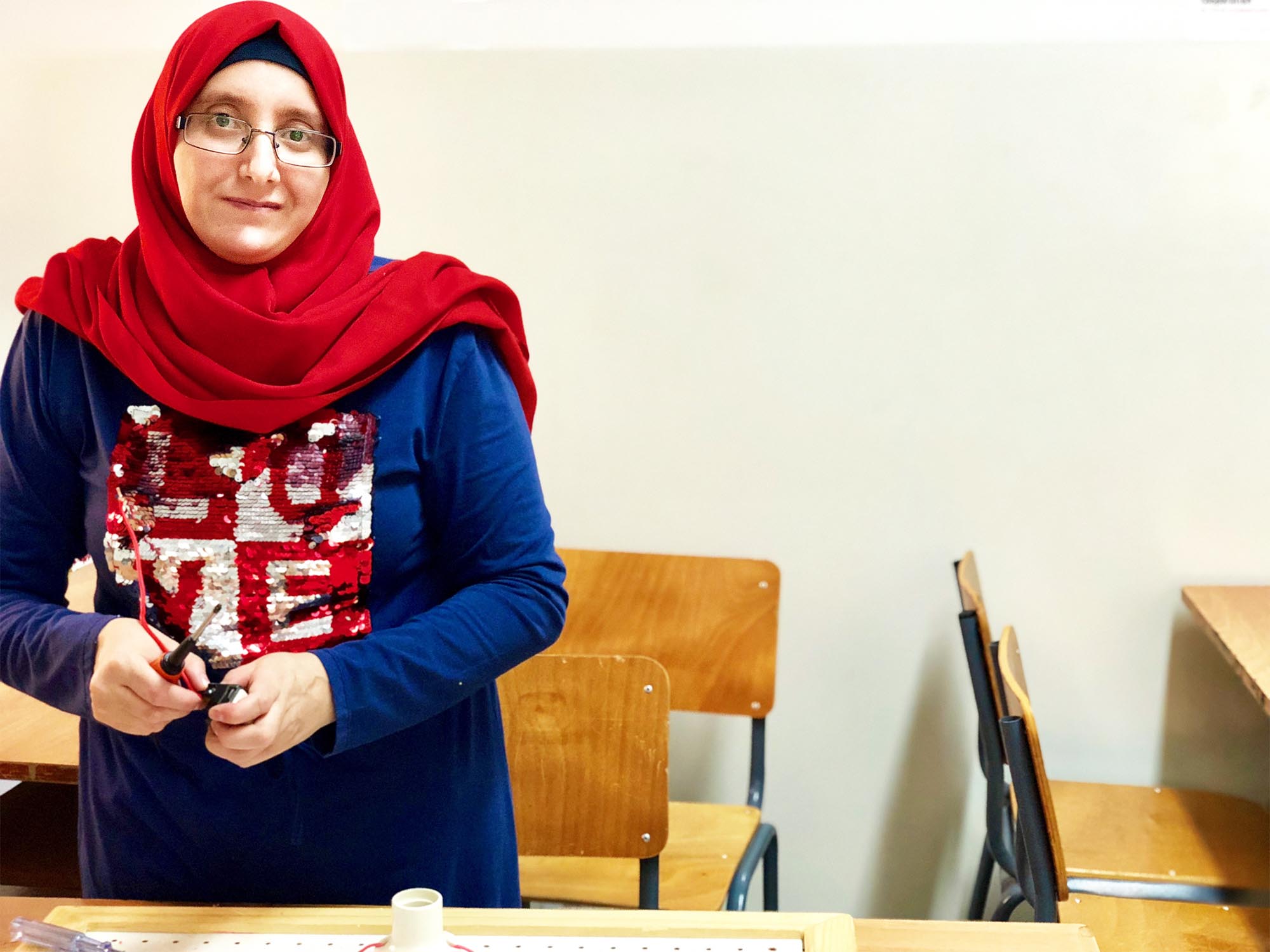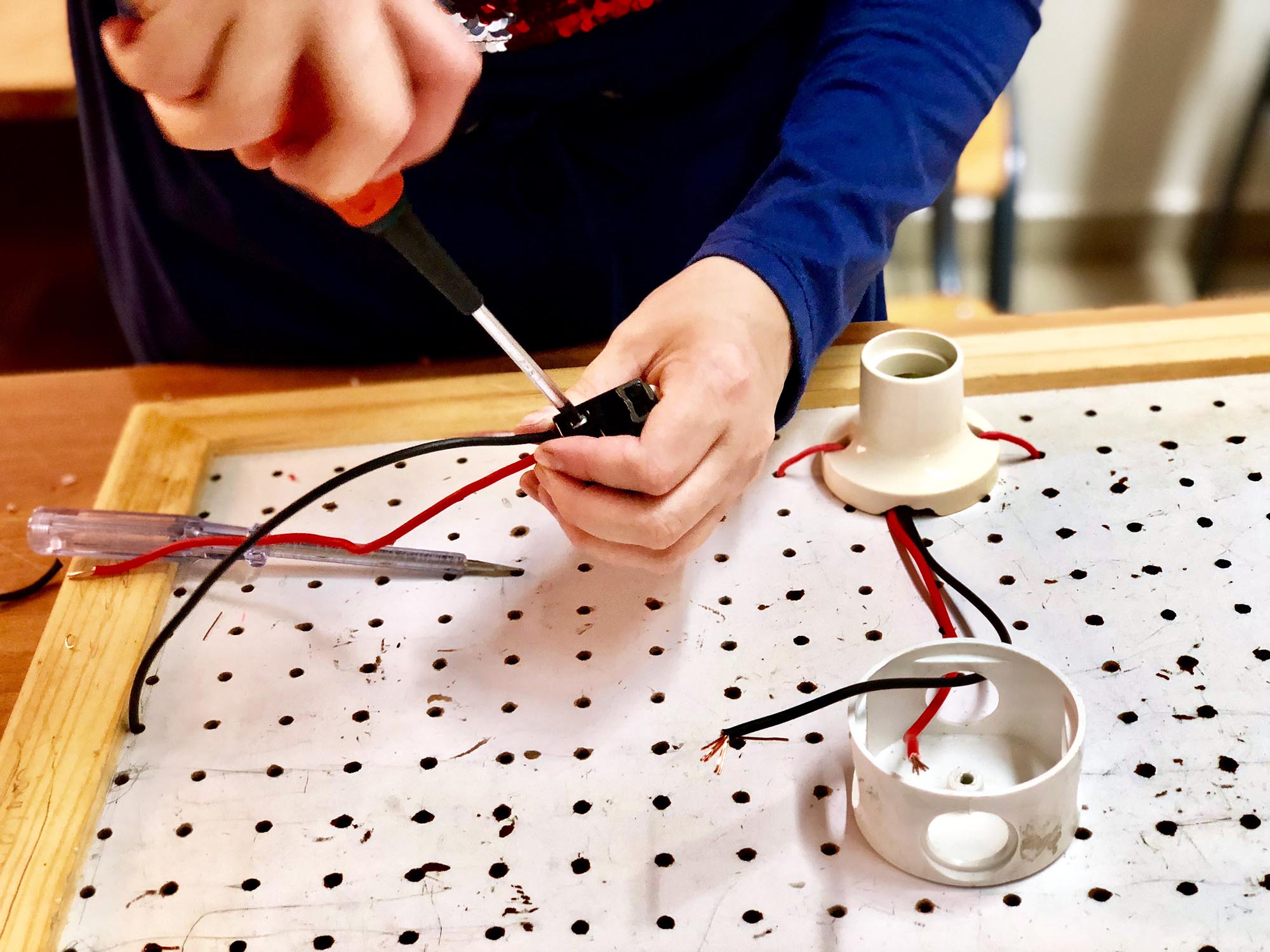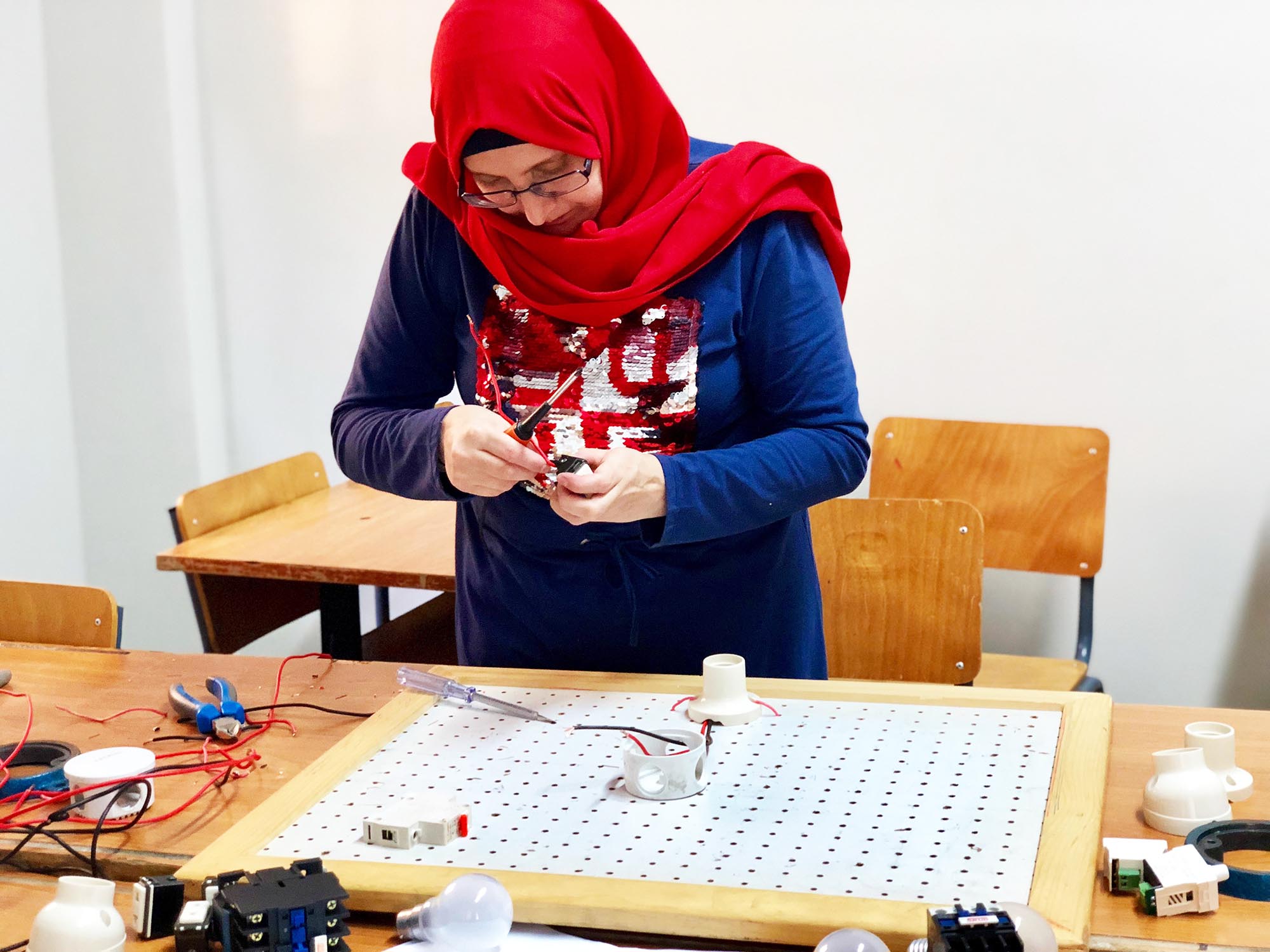Nov, 2018
“People around me were surprised when I signed up for this course. Especially my family. “It’s a man’s career,” they would say. But I did not see it that way. I mean, is there really such a thing anymore nowadays? Women can do anything. All you need is courage!” - Tahani, electrician
Meet Tahani, a 24-year-old Lebanese woman living in the city of Sidon in southern Lebanon. When her neighbor told her about the free home electricity course, provided by Anera at the Culture and Science Foundation (CSF), one of Anera’s many partners, she jumped on the opportunity and signed up. Tahani knew that a strong grasp of the fundamentals of the field would be necessary for her to push her skills to the next level.
Tahani began fixing things at home, starting with a simple light switch. Soon her friends and neighbors were turning to her instead of outside contractors for assistance, and paying her for her efforts.
“People around me were surprised when I signed up for this course. Especially my family. “It’s a man’s career,” they would say. But I did not see it that way. I mean, is there really such a thing anymore nowadays? Women can do anything. All you need is courage!”
When Tahani first started attending classes, her classmates were surprised to see a veiled young woman with them. But Tahani quickly became an essential part of the team. Her curiosity over the subject matter only grew during the courses. Each week brought fascinating new information. She learned how to work with materials like copper and lead, and navigate the world of conductors, semiconductors and circuit breakers.
In other classes, Tahani and her peers focused on proper planning and safety measures while working with electricity, both to protect themselves, and to ensure the safety of their clients.
The second phase of training is an apprenticeship, during which the students go on-site to shadow and assist experienced professional electricians and apply the theoretical knowledge they received during the first phase of the course.
Tahini and her female classmates were met with disbelief by some of the electricians. Tahani says,
“When we got to the site, the electricians asked us what we were doing there. They were surprised - each one of them. Some even asked us if we were the cleaning ladies! They were quite astounded that we are students.”
Despite these patriarchal initial reactions, the young women soon proved themselves to be just as able as any of their male colleagues. By the end of the course, Tahani and her female classmates had gone down in local history as icons of perseverance and determination.
By the time Tahani graduated, it was apparent to her that most, if not all, electricians are men. When a woman is alone at home, calling for a male electrician to come make repairs can be problematic. Tahani realized that this presented an opportunity. She hopes to create a team of electricians composed of young women like herself, who can serve the needs of women clients in the area.
“Anera’s courses really changed my life,” Tahani says. “I am so grateful. I can fix things around the house now. That alone alleviates the burden of having to call and pay for an electrician! I hope Anera organizes a second and more advanced class. It will bring me a step closer to establishing my own all-women team of electricians!”
Tahani and her classmates are among thousands of Lebanese youth who are benefiting from a UNICEF program, funded by the Embassies of the Netherlands and Germany in Beirut, and UK AID.





